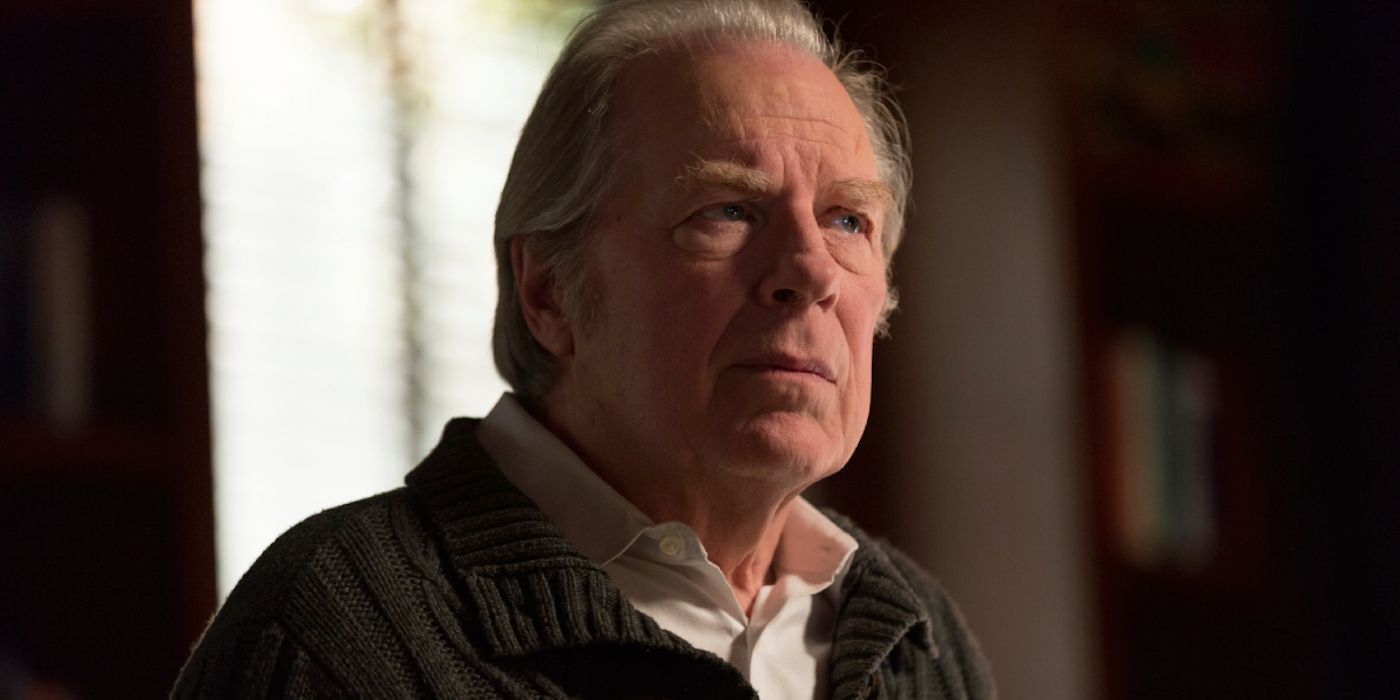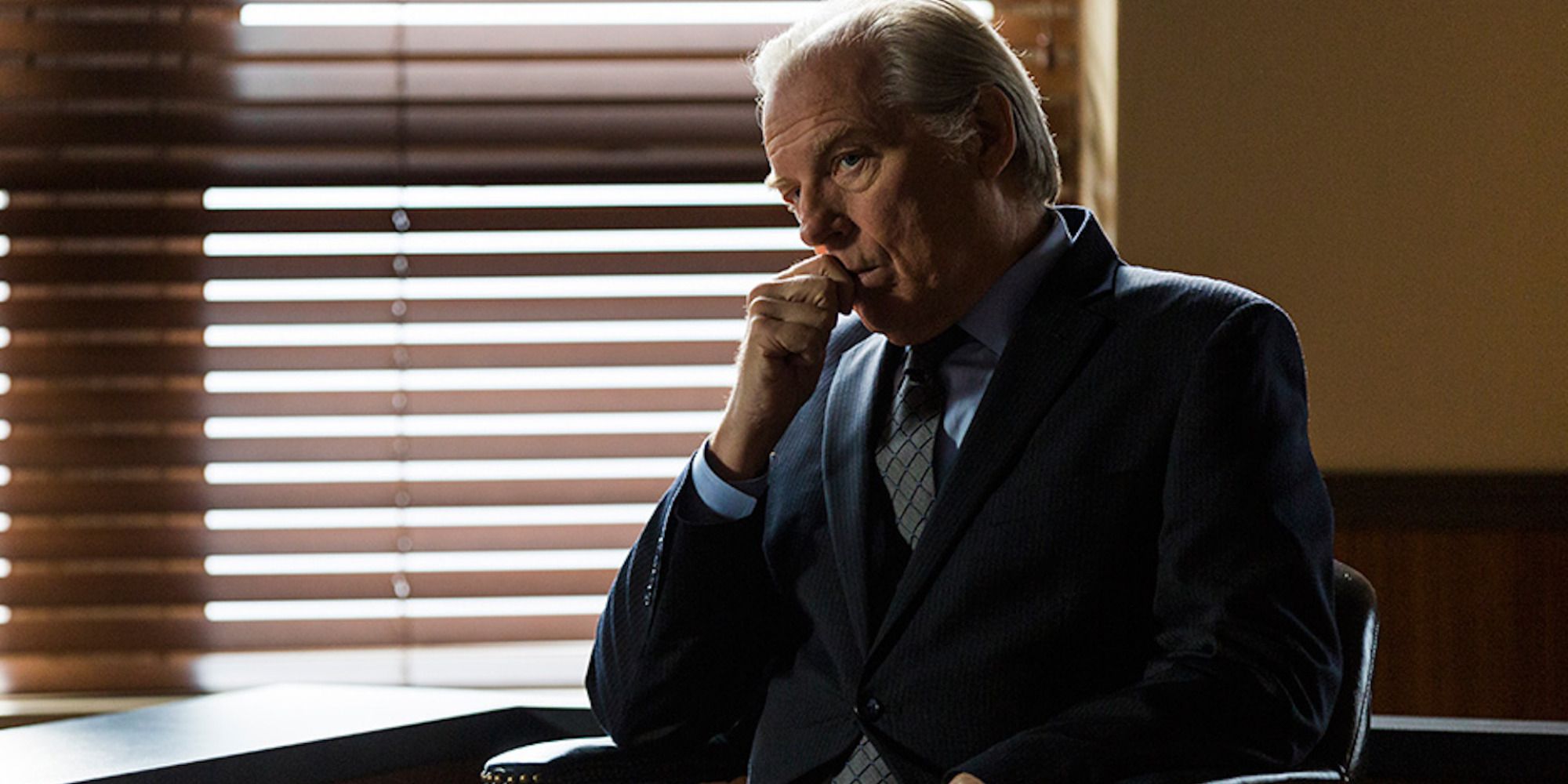That Better Call Saul managed to justify a prequel to the critically and popularly acclaimed series Breaking Bad and, to some, surpass it in every way is a testament to creator Vince Gilligan’s genius and foresight. When Breaking Bad concluded the story of Walter White (Bryan Cranston) in 2013, some of its characters' fates were left unresolved, such as Jesse Pinkman’s (Aaron Paul). While where Jesse ultimately ended up was explored in the Netflix film El Camino, Vince Gilligan developed the prequel series Better Call Saul in order to explore the backstory to fan-favorite Saul Goodman (Bob Odenkirk) with brief glimpses into his eventual future after the events of Breaking Bad. Before he was Walter White’s sleazy go-to lawyer and associate in money laundering, Saul Goodman was Jimmy McGill, an optimistic attorney at law with a criminal past. But fans got more out of Saul than a straight-up prequel to Breaking Bad. Part of making Jimmy McGill’s story so alluring is the cast of characters built around him—Kim Wexler (Rhea Seehorn), Howard Hamlin (Patrick Fabian), and of course Chuck McGill (Michael McKean). As Jimmy’s older brother, Chuck is one of the primary roadblocks to Jimmy’s ambitions as a lawyer. Despite the care and love Jimmy shows him, Chuck remains bitter and hateful. Even with his psychosomatic illness, Chuck is determined to keep his younger brother below him. Through Michael McKean’s performance, Chuck McGill is one of the show’s most despicable antagonists.
The introduction of Charles McGill as Jimmy’s older brother made for a compelling sibling rivalry throughout the show’s early seasons. Although he is one of the lead partners of the prestigious law firm Hamlin Hamlin & McGill (HHM), Chuck spends most of his time secluded in his house. He thinks he has developed a sensitivity to electromagnetism, which means he mostly stays away from anything electric or turns on with a battery. His house is completely powerless, and anyone who wants to meet him inside has to “ground” themselves by leaving all electronics in a mailbox and touching its metal. This is what Jimmy has to do every time he comes by the house to drop off food and supplies. Jimmy shows an absolute love for his older brother. After all, it was Chuck who helped Jimmy get out of trouble back in Chicago — when Jimmy defecated on top of a car in front of children, Chuck represented him as his lawyer. It was also Chuck who hired Jimmy to work at HHM’s mailroom. But apart from these substantial favors, Jimmy still treats Chuck like family. Yet, when Jimmy acquired a law degree from the University of American Samoa through distant learning, Chuck refused to promotee him at HHM. To Chuck, Jimmy’s law degree is illegitimate. It is this tension between Jimmy’s aspirations and Chuck’s disapproval that becomes the foundation for their falling out.
But Chuck’s hatred for Jimmy goes much deeper. His “villain” origin story has roots in their childhood. When their mother was on her death bed, she had asked to speak specifically to Jimmy, who had unfortunately stepped out of the room. Chuck, hurt by their mother’s favoritism towards Jimmy, holds onto this secret, which ultimately fuels his hatred throughout their adult lives. If he can’t be his mother’s favorite, Chuck has to be better than Jimmy in every other way. Refusing to let Jimmy become an official partner at HHM is just one way he demonstrates his vendetta towards his younger brother. Later, even when he suffers from his psychotic episodes and hallucinatory reactions to electricity, Chuck takes advantage of Jimmy and his work on an important class-action lawsuit against Sandpiper Crossing. Chuck musters up the courage, even creating an aluminum suit to assure his anxieties about electricity, to go back to work at HHM. All the while, he planned to keep Jimmy out of the case, still refusing to promote him as a partner. He might mentally be in a state of weakness, but Chuck’s lifelong hatred gives him enough determination to prove himself better — and perhaps more worthy of his mother’s love — than Jimmy.
But Chuck’s jealousy doesn’t end there. When he was married to his ex-wife Rebecca (Ann Cusack), Chuck felt that Jimmy had a more natural chemistry with her. Rebecca would constantly laugh at Jimmy’s jokes, especially the ones poking fun at lawyers (Chuck being one of them). It’s not exactly clear as to why Chuck and Rebecca split, but it wouldn’t be too farfetched that his hatred for Jimmy got in the way of their relationship. Still, their divorce might have also played a part in Chuck’s psychosis. This is what Jimmy posits in front of a court hearing, which was meant to lead to Jimmy’s disbarment as a part of Chuck’s plan but only led to his one-year suspension. But Jimmy had a plan of his own. With the help of Huell Babineaux (Lavell Crawford), Jimmy plants a cellphone in Chuck’s jacket pocket which rings in the middle of the trial. When Chuck’s psychotic anxieties about electricity are exposed in front of a court, he feels absolutely defeated. At that point, there is no saving his reputation as a lawyer, which to him is everything he has over Jimmy. Returning to the seclusion of his home, Chuck purposely kicks a gas lantern over, setting the house and himself on fire. In the end, Chuck’s pride was his downfall.
Ultimately, Michael McKean’s performance as Chuck is what sells the character. McKean is able to elicit sympathy during his manic episodes, yet he can also quickly present a stoic confidence when he dons a suit and tie as an attorney at law. When he’s opposite Bob Odenkirk’s Jimmy McGill, McKean conveys the hidden hatred underneath Chuck’s apparent paternalism. There is no love or affection on Chuck’s part, despite Jimmy’s care and attempt at a healthy relationship. There is only bitterness and jealousy, which is what makes Chuck McGill one of the best antagonists in the Breaking Bad and Saul universe. Although his role as main antagonist was eventually superseded by Gus Fring (Giancarlo Esposito) and Lalo Salamanca (Tony Dalton) as the show delved into Jimmy’s dealings with the cartel leading up to the events of Breaking Bad, McKean’s Chuck McGill is a character surely missed in Saul’s later seasons.


